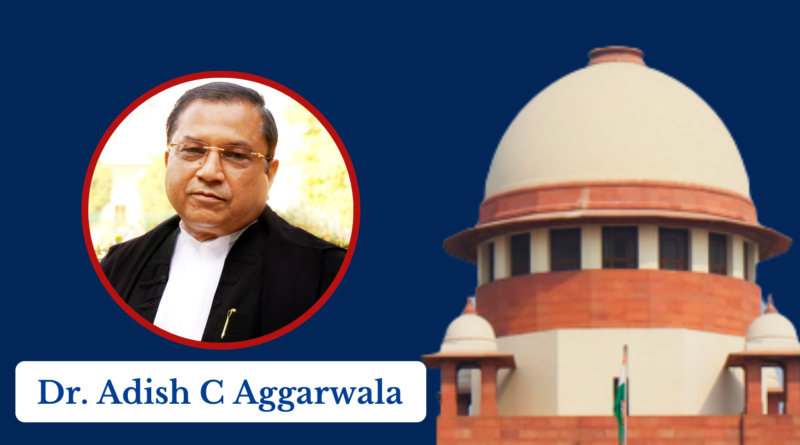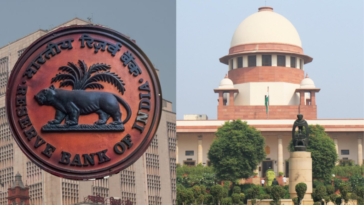Legal Fraternity Urges Immediate Action Against Judicial Misconduct: Call for Accountability & Reform
(Judicial Quest News Network)
New Delhi – In an urgent appeal to the Chief Justice of India (CJI), legal professionals have voiced deep concern over the growing incidents of misconduct and disrespect towards advocates and litigants in courtrooms, especially by judges in High Courts. This call to action follows a representation made by the All-India Bar Association (AIBA) on October 7, 2024, which highlights disturbing trends that threaten the very integrity of India’s judicial system.
The All-India Bar Association has raised serious questions regarding the inaction and silence of the CJI, Justice DY Chandrachud, in response to allegations of judicial misconduct involving a judge from the Madras High Court. This incident, involving Hon’ble Justice R. Subramanian at the Madurai Bench, has sparked outrage within the legal community for its blatant disregard for professional decorum and the dignity of senior advocates.
Growing Concerns Over Judicial Misconduct
The incident, as described by the Bar, involves a senior advocate and Member of Parliament, Mr. P. Wilson, who was subjected to harsh and inappropriate treatment by Justice Subramanian. The senior advocate, while attempting to clarify a legal point, was met with aggressive language and unfounded accusations. Despite multiple representations from Bar Associations across the country, including the AIBA’s letter dated 7.10.2024, no corrective action has been taken against the erring judge.
The legal fraternity is deeply troubled by the lack of response from the Chief Justice of India, particularly given that such incidents are not isolated but represent a troubling pattern of increasing frequency and severity. Lawyers across the country have expressed concern that this inaction reflects a disregard for their dignity and a failure of the judiciary to hold its members accountable for their conduct.
The Silent Crisis: No Action Against Erring Judges
What has become clear from this episode is the unsettling silence and inaction from the highest judicial authorities in response to misconduct by certain judges. Advocates fear that the lack of accountability emboldens such behaviour, setting a dangerous precedent for the future. This indifference undermines the professional standing of the Bar, damaging the trust between the Bar and Bench that is vital to the proper functioning of India’s legal system.
Legal experts warn that the absence of corrective measures has created an environment where disrespect, intimidation, and humiliation towards advocates can persist unchecked. This toxic atmosphere jeopardizes the core values of justice, which are founded on mutual respect between lawyers and judges. If such behaviour is allowed to continue, younger and less established advocates will feel even more vulnerable in courtrooms, fearing retaliation for raising legitimate concerns.
Failure to Act: A Threat to Judicial Integrity
In their letter, the AIBA has also highlighted the broader implications of inaction. The circulation of a viral video from the courtroom, showing the misconduct of the judge, has further exacerbated the situation. The video, which has sparked public outcry, has put the judiciary under a harsh spotlight, jeopardizing its standing as a respected institution. The incident’s widespread exposure has led to questions about the accountability mechanisms in place within the judiciary and undermined public confidence in the fairness of court proceedings.
The AIBA’s call for action underscores the need for enforceable guidelines on judicial conduct. Advocates must be able to practice law without fear of unjust treatment or humiliation. The dignity and professionalism of lawyers must be upheld by all judicial officers to maintain the sanctity of the legal profession and the justice system.
Urgent Need for Reform: Strengthening Bar-Bench Relations
It is increasingly clear that the judiciary needs to adopt clear and enforceable standards for courtroom conduct. These standards should include a code of conduct for judges that ensures advocates are treated with respect and dignity. The Bar Association has called for such reforms to protect the integrity of both the judiciary and the legal profession. The AIBA has requested that the CJI take immediate steps to address this issue, including transferring the erring judge out of the Madras High Court, and initiating dialogue with Bar Associations to ensure better understanding and cooperation.
The legal community also warns that failure to act on these recommendations will reflect poorly on the current leadership of the Supreme Court, especially considering that this incident occurred under the tenure of the sitting Chief Justice of India. The continued silence on this matter could tarnish the CJI’s legacy, suggesting a lack of commitment to the protection of lawyers’ rights and the preservation of judicial dignity.
A Call for Accountability Before CJI’s Retirement
As CJI DY Chandrachud approaches his retirement on November 10, 2024, the legal community has made it clear that swift and decisive action is needed to address the systemic issues at play. The Bar is urging the CJI to act urgently to restore respect and dignity within the courtroom. This includes holding judges accountable for misconduct and ensuring that the Bar-Bench relationship is built on a foundation of mutual respect, not fear or intimidation.
Legal professionals are calling for a clear commitment to reform, including the establishment of guidelines for judicial conduct, a transparent mechanism for addressing complaints against judges, and a reassertion of the judiciary’s role as a guardian of justice, free from intimidation or bias.
Conclusion: Preserving the Integrity of the Judiciary
The Bar Association’s representation is a stark reminder of the growing divide between the legal profession and the judiciary. Without decisive intervention, the crisis of judicial misconduct will continue to erode the trust of lawyers and the public in the judicial system. The judiciary must take responsibility for restoring its credibility, ensuring that the courtroom remains a place where justice is administered with fairness and dignity for all.
The AIBA’s letter highlights the urgent need for a renewed commitment to professional conduct in India’s courts. As advocates demand respect and accountability from their judicial counterparts, it is time for the Chief Justice of India to act swiftly, decisively, and in accordance with the highest standards of judicial responsibility.




